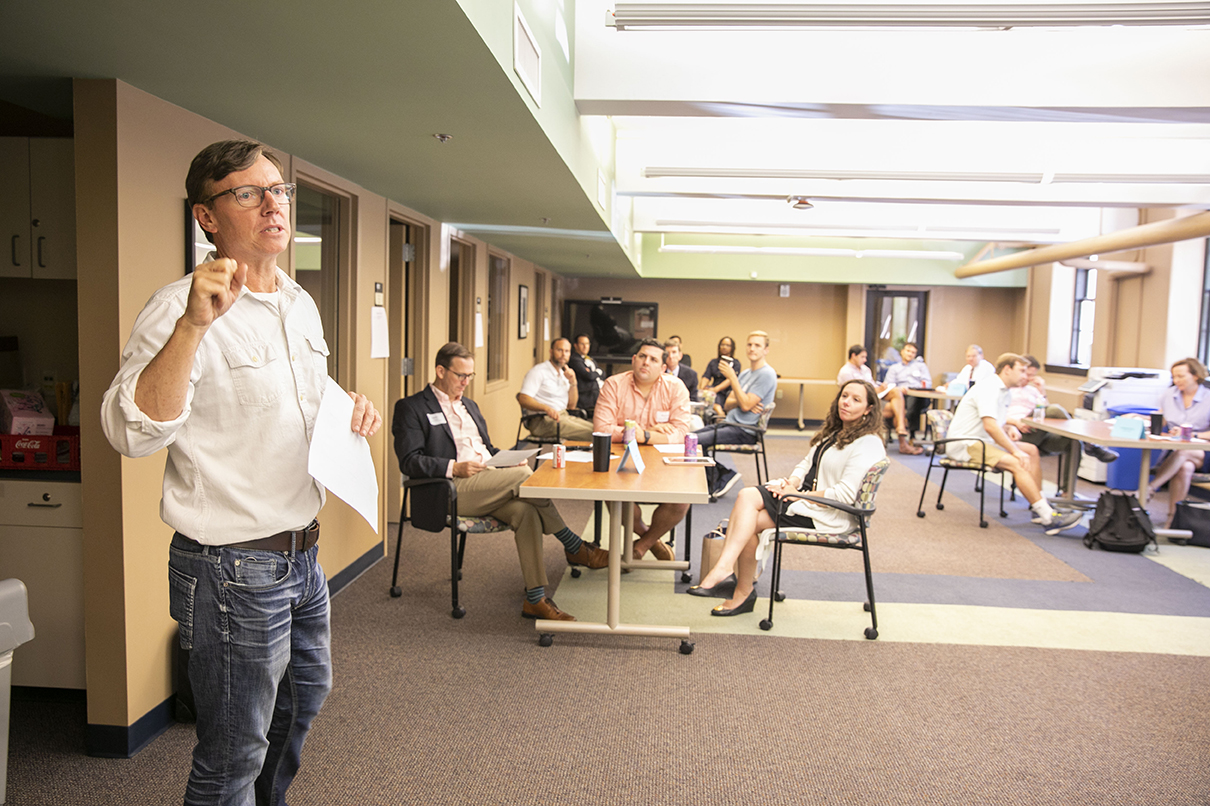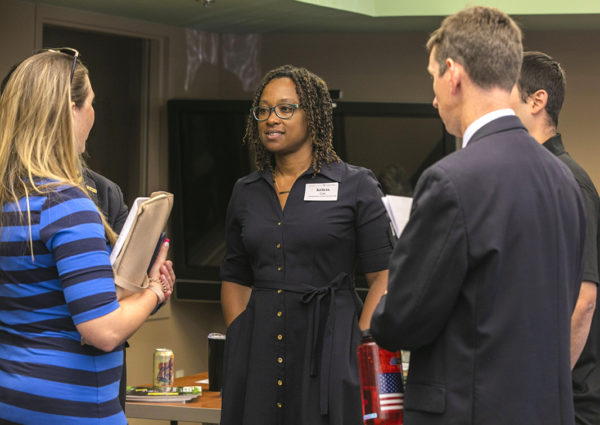
By Jan Read
Vanderbilt’s Peabody College has a long history as a leader in research and programs that shape effective public school teachers and principals. Now, it’s extending that expertise to the independent school sector.
The Independent School Leadership master’s program, launched six years ago, includes instruction from Peabody faculty and industry experts to advance independent school leaders and their schools.
“By their nature, independent schools have leadership requirements that are quite distinct from their public-school counterparts,” says Patrick Schuermann, EdD’06, founding director of the ISL program and assistant professor of the practice in leadership, policy and organizations.
“In addition to the heart and soul of the teaching and learning enterprise, an independent school leader must be an expert in areas such as board leadership and governance, institutional advancement and alumni development, finance, marketing and recruitment, strategic planning, admissions and financial aid. In some ways, it’s like running a business.”
For the past 15 years Schuermann has helped Peabody establish innovative programs to develop leaders for public, private and international schools. He was the inaugural director of the Abu Dhabi Leadership Development project, cofounder of the Tennessee–Shanghai Leadership Collaborative, and creator of weeklong summer institutes for independent school teachers and leaders, the precursor to the master’s program.
The 30-credit-hour ISL program includes two intensive six-week summer sessions in Nashville that bookend a fall and spring semester during which students engage in school-based action research projects on topics central to leadership and learning.
“Every summer we enroll about 20 students from every region of the country and type of school, and we immerse them in a curriculum comprising one- and two-day modules organized into five themes,” Schuermann says. This allows students to experience ‘crucibles of leadership’ that deepen their self-awareness, empathy, confidence and capacity.”
Of course, this summer’s plans are likely to be rather different as the nation deals with the continuing COVID-19 threat. “A cornerstone of the ISL program is the close-knit professional community that develops from engaging in an intensive, cohort-based learning experience,” Schuermann says. “Our commitment to cultivating community is as strong now as ever, and we will all—students, alumni and faculty alike—do our very best to build on this cornerstone in new and creative ways.
“While the timeline for our program’s being directly impacted by social distancing is currently uncertain, the value we place on deep, meaningful intellectual and social engagement is unwavering.”
Alyssa Finneyfrock, MEd’17, associate head of school and upper school head at Atlanta Academy, enrolled in the program about 10 years into her career. A Division I athlete as an undergraduate, she wanted to continue to grow her leadership skills while expanding her knowledge of the business side of independent schools.
For Finneyfrock, the modular setup worked perfectly. “People in a variety of different roles—heads of schools, finance and admission directors, board members—came in each week, so I was able to listen and learn from people in the field,” she says. “We heard every perspective from every constituent. I really thrived on that.”
Schuermann says that variety is intentional. “Every day in the program, students build a bridge between theory and practice,” he says. “These discussions and the assignments that follow all provide opportunities for students to apply classroom learning to real-world leadership in independent schools.”
“I used one of my action research projects to explore virtual reality in education,” says Adam Mangana, MEd’18, the new head of Benedict Day School in Hattiesburg, Mississippi. “As a result, my school built a virtual reality lab, and we got national media coverage for the impact it is having on our school community.”
Mangana says he wasn’t yet aspiring to a head-of-school role when he was recruited just after graduation to apply for the top job at Benedict. “I was blown away by the eagerness of the school to land me,” he says, adding that he believes the ISL program was a key factor.
Shannon Dishman, MEd’17, had three years of experience as a middle school leader when she enrolled in the ISL program with the goal of being ready to seize an opportunity to be a head of school. Already experienced in budgeting and enrollment, she found the modules on independent school law and strategic planning particularly useful.
Network Effects
Schuermann says the program’s structure and culture help the students forge close bonds. “The intensive schedule puts students together to learn and problem-solve about the complex dilemmas that independent schools face today,” he says. “The beautiful thing: That doesn’t change when students graduate.”

About 50 percent of program alumni come back to campus each summer to lead sessions and network during the annual ISL Alumni Weekend. Each cohort and the entire ISL alumni base also have active text-messaging groups. “The ISL alumni group is talking every day,” Finneyfrock says. “You can throw out a question on the group text—who’s faced this situation and how have you handled it?—and within a few hours you’ll have a ton of answers and perspectives.”
The ISL master’s program, along with its alumni network, helped Dishman land a promotion last summer. “Our head of school supported me as I went through the program, and she knew about the strength and value of the degree and our alumni network,” she says. “When she decided to retire, she recommended that the board hire me, and 45 minutes later I was named as the new head of school.”
The alumni network also provides career opportunities. After her promotion Dishman reached out to classmate Finneyfrock, then an administrator at Jackson Prep in Mississippi, and asked her to apply for the associate head position. Finneyfrock joined the Atlanta Academy last summer—continuing proof of the strength of the program and its vigorous alumni network.
Jan Read is a Nashville freelance writer. A former editor, writer and manager in Vanderbilt’s Division of Communications, she earned her journalism degree from Michigan State University.